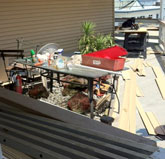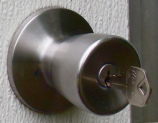Alex and his brother have been on vacation this week, renting a condo at the beach. Sounds fun and relaxing. Or it would be, if it weren’t for the construction workers re-siding the condo building. They’re tossing debris everywhere, including near cars, leaving tools and construction materials around off hours, and hammering at 8 A.M. It’s making these vacationers cranky, and the real estate agency that rented them the condo said that they would contact the owners, but hasn’t contacted them. The vacation is nearly over. What should they do? [More]
condos
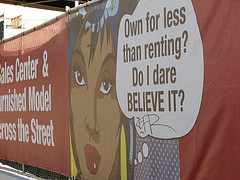
Condos Sold Without Owners’ Permission For 1/3 Their Value
Imagine that you’ve recently purchased a condo for $100,000. The complex where it’s located is about 90% rented, and 10% owner-occupied. The complex’s owner struggles, and the whole neighborhood goes up for sale in a foreclosure auction. The new owners dissolve the condo association, since they own all of the rentals, or 90% of the homes in the complex. This gives the owners permission to sell the entire complex at once, including what used to be condos. Your proceeds from having your home sold out from under you: $33,000. You still owe the rest of your mortgage, but have nowhere to live. Condo owners in Reading, Pennsylvania experienced this nightmare recently, and there is no legal way out for them. [More]

Condo Owners Not Giving Up Fight Against Providing Dog DNA
Back in March, we brought you the story of a condo complex in Northern Virginia where dog-owning residents had been given 30 days to provide DNA samples of their canine companions. But the condo owners tell Consumerist that in spite of the condo association’s best attempts to ignore them, they aren’t about to take the DNA requirement lying down. [More]
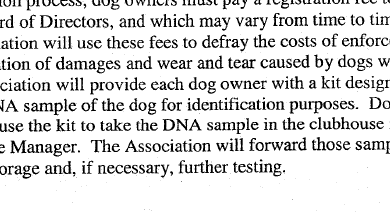
My Condo Association Is Demanding DNA Sample From My Dog
Dave and his wife live in a condo complex in Northern Virginia. They also own a dog. Now, because of new a rule by his condo association, they and anyone else who owns a dog has 30 days to provide a DNA sample of their canine companion. [More]

Recession Turns Homeowner Association Fights Brutal
Florida is full of condo complexes run by homeowner’s associations. After you’ve bought and paid for your condo, all you have to do is pay the monthly maintenance fees and you get trim lawns, a snappy billiards room, and a clean shuffleboard area. But as the economy stews in its own juices, the AP reports, some seniors living on a fixed income are having trouble making these monthly payments – and no wonder, with special assessments of $6,000 – and are getting foreclosed on by their own neighbors for as little as being 60 days past due on their fees. Some of them have also stopped making payments in protest over things like the rats, and the sewage raining on their head: [More]

Buyers Unearth Old Real Estate Law To Escape Now-Crappy Home Deals
A law implemented in 1968 to protect would-be swampland purchasers is now the best friend of home buyers who went into contract at the height of the bubble and are now trying to escape paying well-above market value and get back their deposits. [More]

Man Caught In Deed-In-Lieu Of Foreclosure Hell
Since he had to get rid of his house and move to take advantage of some new opportunities, Joe has been working for months to get Chase to accept a deed-in-lieu of foreclosure on his condo in Chicago. A deed-in-lieu is when you hand over your house to the bank rather than go through a normal foreclosure process that is lengthy and costly for both parties. He met the requirements and began his descent into hell, full of lost paperwork, unreturned calls, and missed deadlines, despite contacting the executive offices of Chase, Freddie Mac, and Chase Home lending. Finally he catches a break, only to have his hopes snatched away again at the last moment… [More]
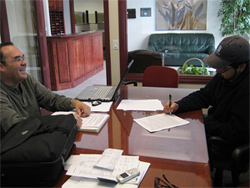
10 Things To Know Before Buying A Condo
Before you jump into buying a condo, there’s 10 questions you should know the answer to: [More]
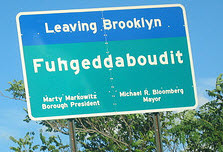
New York Mayor Says Luxury Homeless Shelter Residents Shouldn't Get Too Cozy
New York Mayor Michael Bloomberg told the Daily News that the residents of the swanky failed-condo-turned-homeless-shelter shouldn’t get too comfortable. They’ll need to move on.
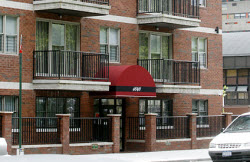
New York City Converts Luxury Condo Into Homeless Shelter
Could this be the nicest homeless shelter in America? The Daily News is reporting that the city is paying $90 a night per apartment for the use of a failed luxury condo development — which features granite countertops, marble bathrooms and walk-in closets. (The $90 a night figure includes social services, housing help and job counseling designed to get families back on their feet.) Local residents, some of them interested in renting an apartment in the building, are pretty ticked off.

What Do I Need To Know Before I Refi?
I am going to meet with him after work today, but was wondering, what sort of things do I need to look out for, and know, going into this? This is my first mortgage ever (I’m 21) and don’t know too much about what’s normal and what’s not. If you could give me any hints or suggestions, that’d be awesome! Thanks so much, and have a great day!
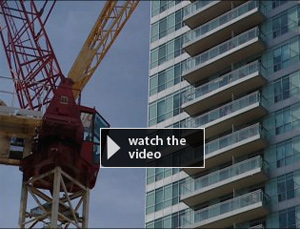
Buyer Beware: The Condo Squeezeplay
CBC Marketplace did an undercover investigation into buying a condo, and found that it’s rife with risk for the buyer, while the sellers completely protect themselves. You get lured in by the model condo they set up, all spacious and with stunning views and stainless steel appliances and breakfast bar and all that jazz, but contractually, there’s no guarantee that you will get that space. The contract pretty much says everything is subject to change, the floorplan included doesn’t have any measurements or square footage, and there’s clauses that say that any sales material or verbal promises made don’t count at all. One contract lawyer says that any relationship between what you’re told you’re buying and what you end up with will be a “coincidence.” Watch the video to learn more about protecting yourself from the condo bait-and-switch squeezeplay.
The Best Way to Buy a Time Share: Don't
“Time shares” are vacation homes that you buy the right to live in for a certain period every year. Theoretically, you and the other “owners” get to “own” a resort retreat for a fraction of the cost of outright ownership.


